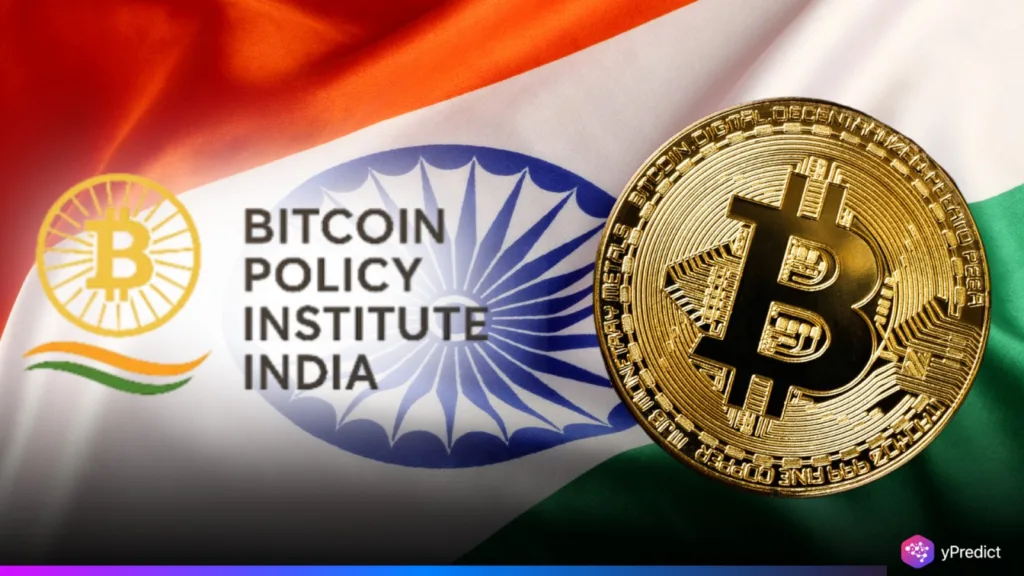
On August 15, 2025, which also happens to be India’s Independence Day, the Bitcoin Policy Institute India (BPI India) was officially launched. The launch date ties in with a symbolic push toward financial sovereignty, an idea, as the crypto landscape in India continues to evolve, that is gaining traction. Drawing on data from a Chainalysis report of 2023, which placed India among the global leaders in grassroots crypto adoption, BPI India is potentially framing Bitcoin as both an economic engine and also as a strategic reserve asset.
A Strategic Push for Financial Sovereignty
BPI India hopes to transform the Bitcoin policy landscape in India by establishing a framework to facilitate its deployment as a hedge against inflation and geopolitical risk. They looked at research already done by the institute, which notes Bitcoin’s growing importance regarding national approaches toward economic strategy. Interestingly, the report states that 70% of India’s crypto transactions are above $1 million, providing a sense of institutional and overall large-scale engagement. In that regard, BPI India believes Bitcoin can advance India’s monetary independence.
Part of the inspiration has come from the use of renewable energy in Bhutan for Bitcoin mining. Bhutan is turning its natural hydropower context into revenue to maximize efficiencies from energy use. The proposal from BPI India proposes a similar approach.
Mining as an Economic Catalyst
The proposed plan for Bitcoin mining could bring in 2-3 lakh jobs, especially in sites with renewable resources. The plan’s focus is on sustainable infrastructure, with hydropower integrated into mining to minimize environmental impact.
BPI India is hoping that India will not only be a player in Bitcoin mining but also a market that can export its developments to other developing economies. The institute plans to create a mining ecosystem, with -works using clean energy -resource base, to help promote India’s strength in the global crypto markets.
Overcoming Historical Regulatory Skepticism
The road towards cryptocurrency regulation in India has had its ups and downs. The 2021 Crypto Ban introduced by the Reserve Bank of India (RBI) halted much of the progress of the industry, forcing many businesses to close or to find a new base of operations. However, following a partial follow-up in 2022, the ban had been partially lifted, allowing operations on a limited basis and rekindling interest.
BPI India argues that now is the time for a paradigm shift. The institute has come out in support of a permanent policy change advocating for a national Bitcoin reserve. This can be argued as part of the tools for economic stability. Their research indicates Bitcoin’s ability to act as a buffer against currency devaluation during uncertain periods globally.
Building a National Bitcoin Reserve
A national Bitcoin reserve is a critical part of BPI India’s Bitcoin Policy recommendations. A reserve would be, as the institute suggests, a long-term store of value, disregarding inflation and freeing it from political pressure. BPI India argues that the move would not merely provide a financial hedge. It would also represent a message of economic sovereignty. The launch of BPI India indicates a collective aim at obtaining this vision in future mainstream policy discussions. The Institute will work with legislators, energy companies, and technology firms to create a comprehensive framework for mining, reserving management, and a regulatory environment.
A Policy Shift in the Making
BPI India’s launch on Independence Day makes one thing clear. India is ready to embrace Bitcoin beyond its role as retail speculation. BPI wants to focus on renewable energy-powered, large-scale mining, national adoption, and a national Bitcoin reserves strategy. The institute is trying to align the cryptocurrency strategy with national economic goals.
There are regulatory hurdles, but the institution’s approach to mining takes into consideration economic growth, environmental responsibility, and technological advancement. If BPI India’s proposals come to fruition, India has the potential to play a dominant role in the Bitcoin economy. This will be a shift from being an observer to a decision maker in the crypto policy space.






